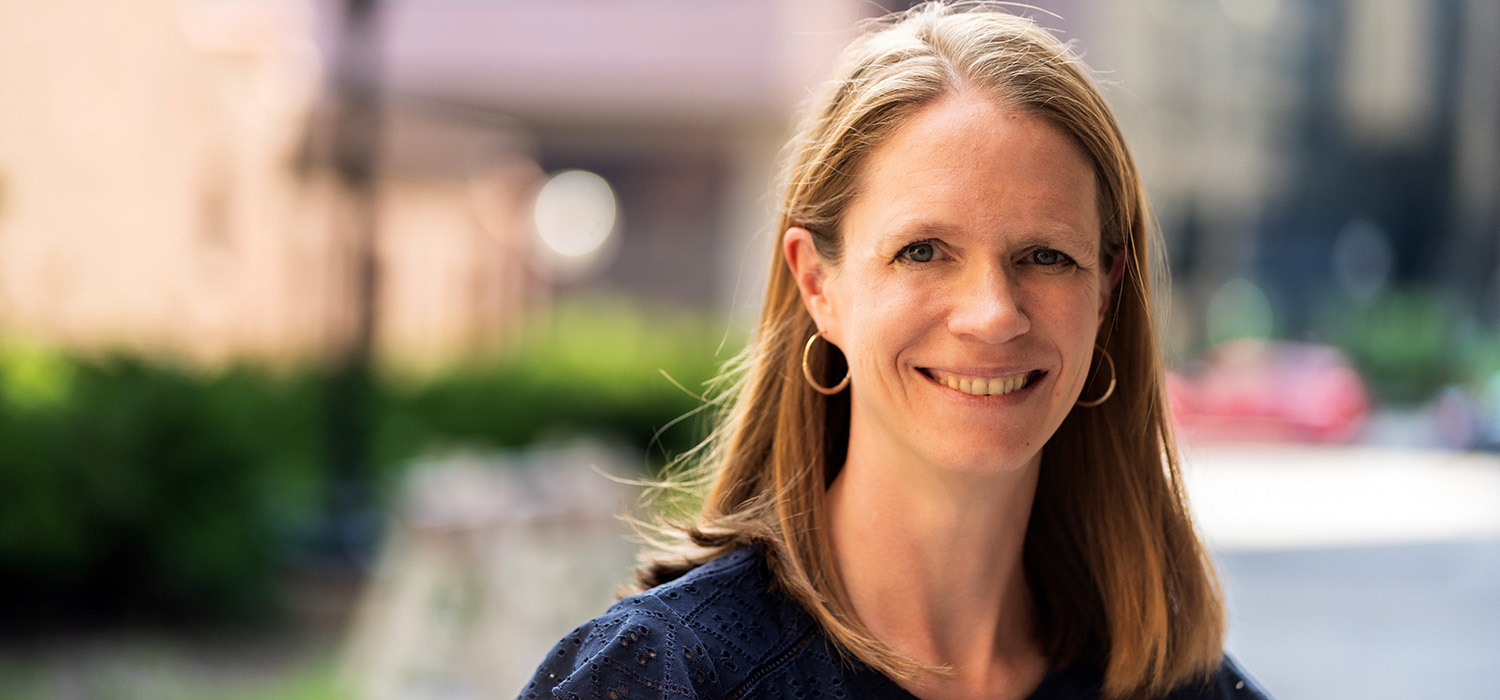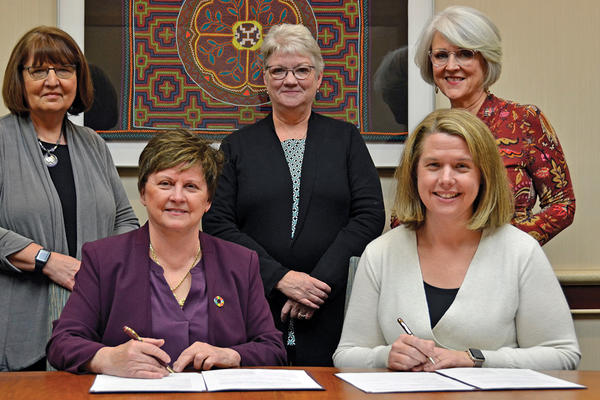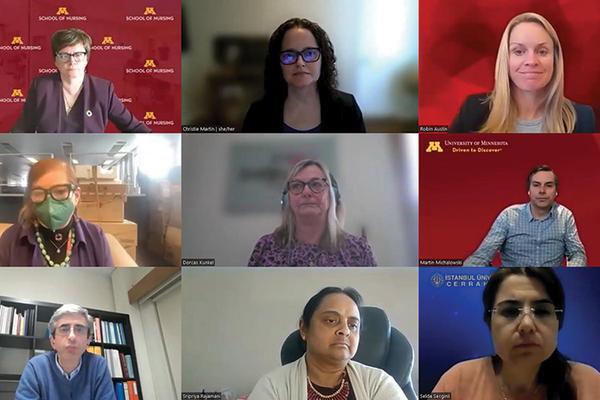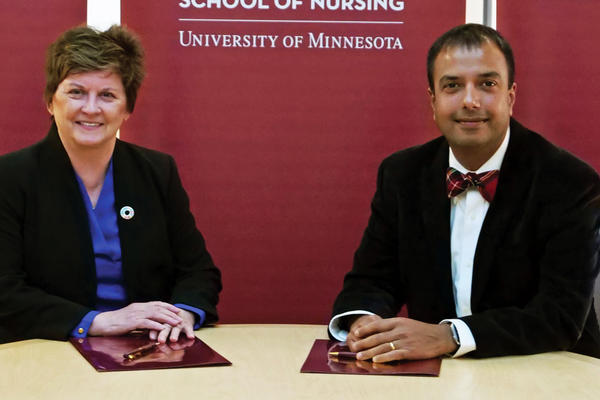A fruitful alliance
Marquard aims to advance patient care through nurse-engineer collaboration
May 3, 2023
Susan Maas

Jenna Marquard is working at the intersection of engineering and nursing to improve health outcomes.
With her background in engineering and her understanding of a nurse’s sensibility, Jenna Marquard, PhD, is a rare breed.
But she shouldn’t be, she believes, and she’s working to make nurse-engineer partnerships more common—and seamless—than they currently are.
Marquard, who joined the nursing school faculty in 2021, is featured in the March issue of American Journal of Nursing, along with a handful of colleagues who are at the intersection of engineering and nursing. They’re leading a movement toward bringing these two professions together to enhance patient care and health outcomes.
Her master’s degree and her PhD, both from the University of Wisconsin-Madison, are in industrial and systems engineering. “My specialty is human factors engineering. Basically, the premise is that anytime you’re engineering a product or technology or system, there are people who will be using it,” Marquard explains. “So you need to be thinking about who those end users are, what they want to do, and the context where they will be using what you are designing.”
She came to the U from the University of Massachusetts Amherst, where she helped lay groundwork for the institution’s new Center for Nursing and Engineering Innovation. Marquard quotes one of her colleagues, who now codirects that center, as observing that “nurses are the biggest users of technology in health care, and they’re mostly left out of the conversation.” Her mission is to change that.
Complementary strengths
“Engineers are hard workers. They are ingenious. But they don’t always start with the problem,” Marquard says. “And nurses are so focused on the difficult work that they’re doing, they don’t always even know or have time to wonder if it’s possible to do something differently.”
Marquard, who knew about the U of M nursing school’s nursing informatics group from conferences and their research track record, says she reached out to Dean Connie White Delaney, PhD, RN, FAAN, FACMI, FNAP, and faculty to gauge interest in having an engineer on faculty. “They see things out of the box,” she says.
Her interest in health care goes back decades. Her field, often referred to as nursing informatics, is built on the supposition that “we can use data and information to help empower people to make better decisions or carry out healthier behaviors,” Marquard says. “We have access to a huge amount of data right now. That can really be beneficial” — both to patients and to the professionals caring for them — "if it’s analyzed and displayed to the end users in thoughtful ways.”
And most patients’ knowledge about their own health and habits could be deployed to their advantage, but often isn’t. “Patients have so much information and data about themselves that’s not making it into the clinical conversation,” Marquard says. “The information you have about yourself and your health is as important as the single blood pressure reading they take at the clinic; it tells a story about you.”
Nurses are key to problem solving
Marquard has engaged with nurses to help improve sleep and decrease fatigue in patients with chronic illness. She’s also studied the use of eye-tracking technology to understand how nurses obtain information from electronic health record notes, detect patient identification errors and execute clinical workflows.
And she recently focused on a project with individuals who have HIV and AIDS, the essence of which was “trying to help them track their medication-taking. And trying to figure out ways to do that unobtrusively”—because the tools and systems she develops must be seamless to be used. Implementing enhancements in care cannot involve further burdening nurses or their patients, she says. “Just having more data isn’t helpful. You need to figure out how to distill it and display it in ways that are understandable and actionable,” she says.
Marquard relishes opportunities to foster and participate in collaborative relationships, beyond nurses and engineers to include physicians, neuropsychologists, computer scientists, mathematicians and others. She’s excited to build more models for such collaboration. “And I want to figure out some creative ways to bring more students into our courses from outside of nursing,” she says. “Even more than research, I would say that’s my lifelong passion: to get engineering and nursing schools to talk to each other more.”
The Twin Cities native, who enjoys running, biking and cross-country skiing with her husband and three sons, is excited to be back in Minnesota. And she’s thrilled to be in the University of Minnesota School of Nursing. “It was clear that this was going to be a really great place to work, a place where I could be highly productive. I felt I could contribute in some pretty significant ways,” Marquard says. “It’s going to be good.”


